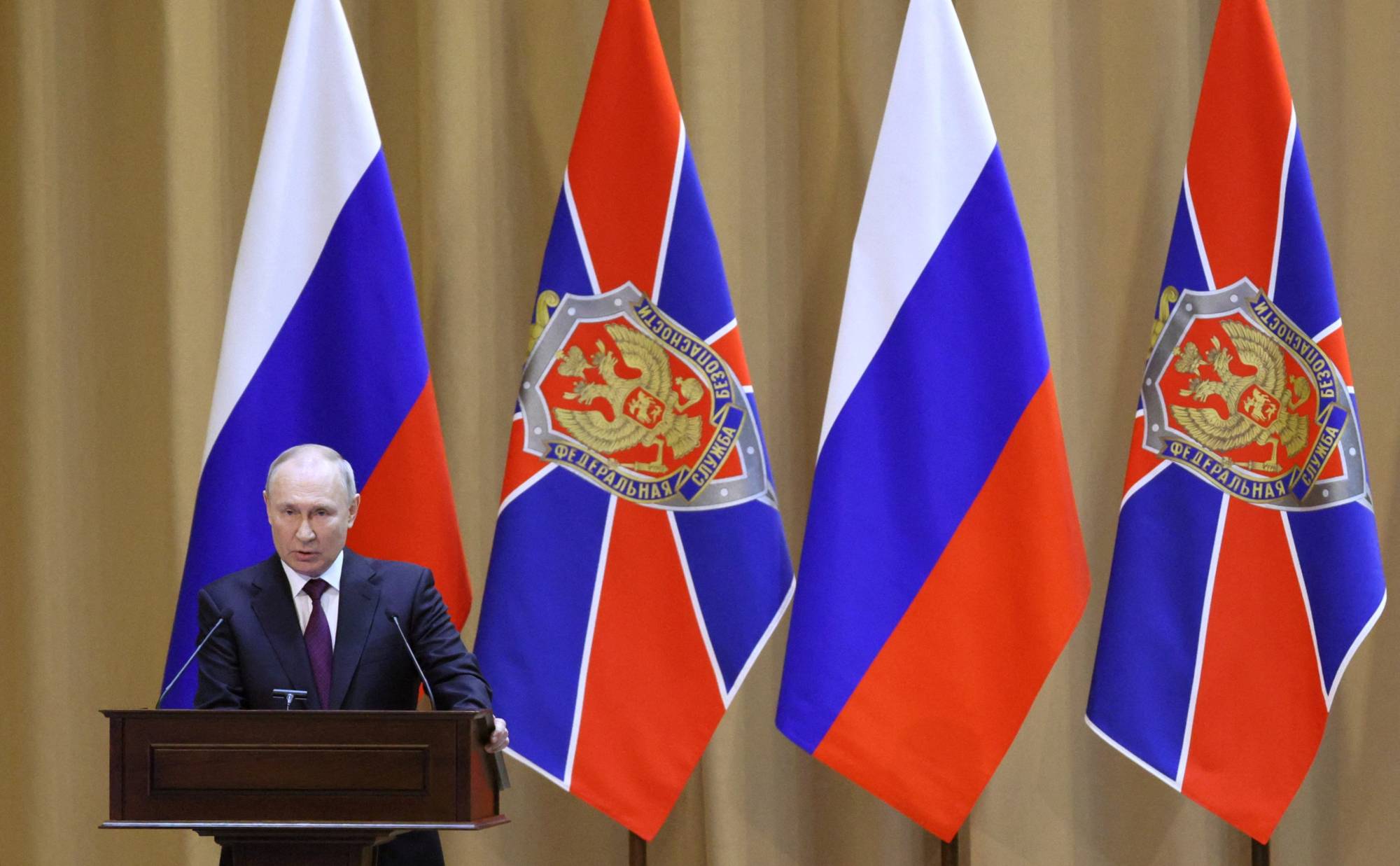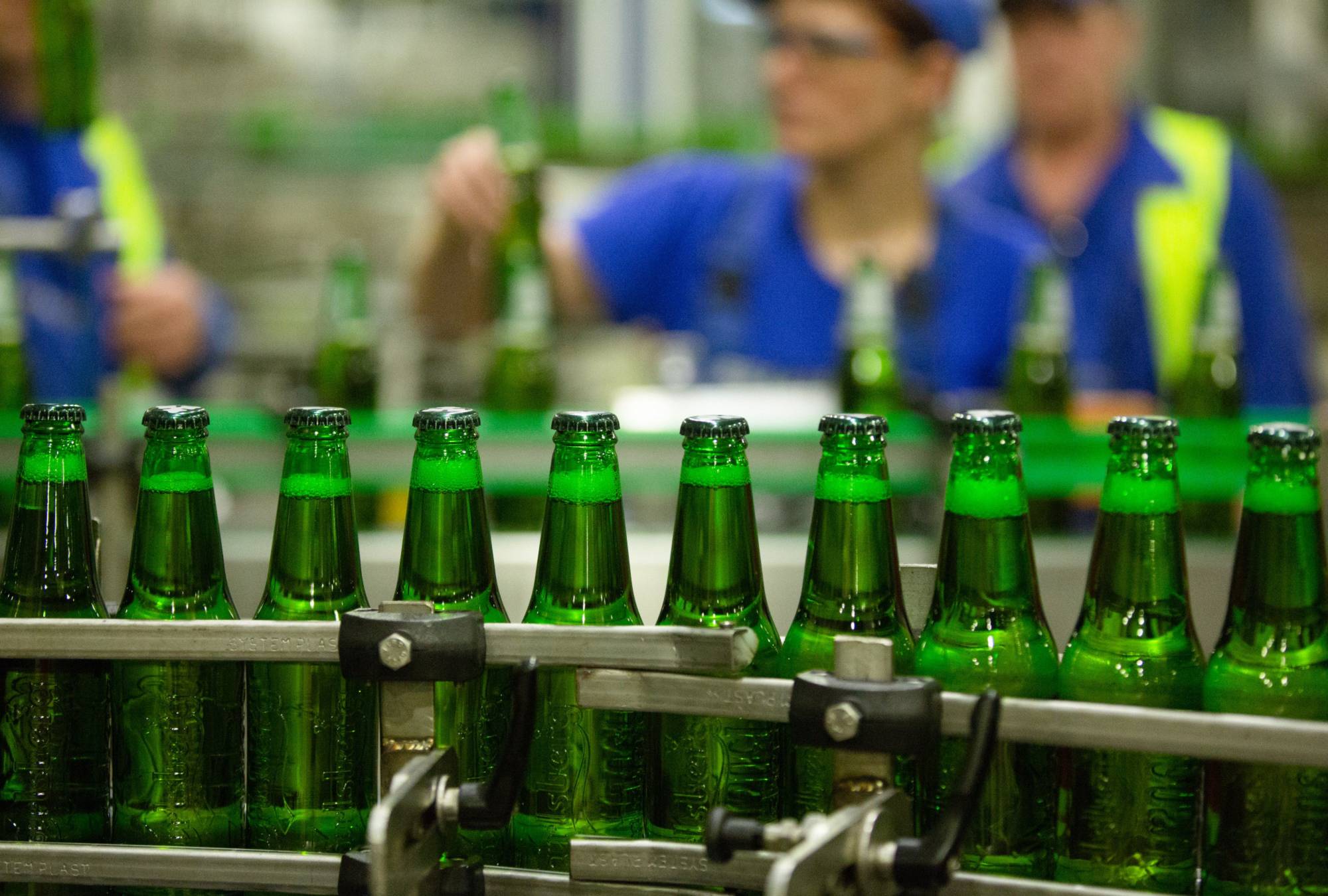Exiting Russia Becomes Painful For Foreign Firms As Looses Top $107 Billion; How Vladimir Putin’s Arm Twisting Created Hurdles In The Exit Of Most Foreign Companies
Since the 2022 invasion of Ukraine by Russia, foreign companies have faced significant financial losses and challenges due to the corporate exodus from Russia. This departure has resulted in over $107 billion in writedowns and lost revenue, marking a one-third increase since the previous count in August last year. The situation emphasizes the deep impact of Moscow's invasion on the corporate world and the sudden void of Western expertise in Russia's economy.

Since Russia invaded Ukraine in 2022, foreign companies have suffered over $107 billion in writedowns and lost revenue due to the corporate exodus from the country.
The tally of losses has surged by one-third since the previous count in August of the preceding year, spotlighting the substantial financial blow dealt to the corporate sector by Moscow’s invasion.
Additionally, it emphasizes the sudden departure of Western expertise from Russia’s economy.
Ian Massey, Head of Corporate Intelligence, EMEA, at global risk consultancy S-RM, noted, “As Russia’s invasion continues amid faltering Western military aid, and the granularity of Western sanctions regimes increases, companies still aiming to exit Russia will likely face further difficulties and have to accept greater writedowns and losses.”
This observation stresses the ongoing challenges and risks for companies attempting to withdraw from Russia.
Following his re-election, which was widely criticized in the West as unfair and undemocratic, President Vladimir Putin now has a renewed mandate to intensify Russia’s isolation from Western nations, which could involve further measures such as additional asset seizures and political pressure, according to Massey.

High On Directives
Moscow is demanding discounts of at least 50% on foreign asset sales and has been tightening exit requirements progressively, often accepting nominal fees as low as one rouble.
Asset sales by companies like Shell, HSBC, Polymetal International, and Yandex NV this year have totalled nearly $10 billion, with discounts reaching as high as 90%.
Recently, Danone announced regulatory approvals to dispose of its Russian assets, incurring a total loss of $1.3 billion.
Despite approximately 1,000 companies having exited Russia, hundreds, including French retailer Auchan and Benetton, are still operational although many have put operations on hold there, according to analysis.
Retaliation By Russia
After Russia’s invasion, Western nations took action by freezing approximately $300 billion of the Bank of Russia’s gold and foreign exchange reserves.
In response, Germany nationalized Gazprom’s Germania plant, renaming it Sefe, and placed Rosneft’s Schwedt refinery under German trusteeship.
However, Russia has vowed retaliation against EU proposals to redistribute interest earned on its frozen assets, warning of dire consequences and denouncing any attempt to seize its capital or interest as “banditry.”
Likewise, concerns also loom among Western banks about potential legal disputes arising from asset confiscations.
Ian Massey, from global risk consultancy S-RM, emphasized the precariousness of Western assets in Russia as long as the conflict persists.
Moscow has already assumed temporary control of assets owned by Western companies such as Fortum, Carlsberg, OMV, and Uniper.
Calculations by Russia’s state RIA news agency suggest potential Western losses of at least $288 billion if Moscow were to retaliate, with EU nations holding the bulk of these assets.
However, Russia’s aggressive stance has its own repercussions.
Lawyer Jeremy Zucker, specializing in sanctions, noted a significant number of clients from various sectors opting to completely withdraw from Russia, potentially leading to long-term reluctance to return post-conflict.
This exodus of expertise risks hampering Russia’s capacity for certain high-tech production, suggesting substantial economic damage.
A decree enacted in 2022 prohibits investors from “unfriendly” countries—those imposing sanctions on Russia—from selling shares in crucial energy projects and banks without explicit presidential approval.
Despite this, some producers of everyday goods have remained in Russia, citing the reliance of Russian consumers on their products. Companies like Mondelez International, PepsiCo, Auchan, Nestle, Unilever, Reckitt, and British American Tobacco continue operations, while others, including Intesa Sanpaolo, encounter bureaucratic obstacles as they attempt to exit.
As mentioned already, while over 1,000 companies have scaled back operations in Russia since the invasion of Ukraine, a significant number still persist. Among those remaining, Chinese companies dominate, with others from the United States, Japan, Germany, France, and India continuing business as usual, undeterred by the conflict.

Russian Arm Twisting
After Moscow’s invasion of Ukraine, a wave of Western companies swiftly departed Russia. However, those opting to stay encountered significant obstacles in their attempts to leave.
For firms desiring an exit strategy amid substantial reputational and financial harm, the process became increasingly challenging over time. Hence, some companies opted to remain due to the perceived higher risk associated with leaving Russia at the current juncture.
The Russian government’s frequent alterations to multinational corporation departure procedures prolonged the exit process significantly.
As a result, companies adopting a hasty exit approach risked state seizure of their assets and potential criminal prosecution of Russian employees.
In July, Russian President Vladimir Putin seized the Russian operations of Carlsberg and Danone, placing the businesses under the control of two close associates.
These companies had planned to divest their Russian assets before the government takeover.
The Russian market posed considerable risks for Western companies, and as the window for departure narrowed, they faced the prospect of becoming entangled in geopolitical tensions.
“The expropriation of Danone and Carlsberg was a significant move because it made the Russian government’s actions towards the remaining companies unpredictable. It sent a clear signal to the remaining companies that even non-strategic companies could be targeted,” explained Maria Shagina, a senior research fellow at the International Institute for Strategic Studies.
Despite challenges, some businesses continue operations in Russia, with promises to find buyers, reduce operations, or exit entirely. However, they must navigate criticism, such as being labeled by the Ukrainian government as “international sponsors of war,” as in the case of Unilever.
Heineken’s struggles illustrate the difficulties encountered by similar firms seeking to leave. With 1,800 staff in its Russian unit, Heineken faced obstacles in executing a swift exit.
Despite discomfort over potentially benefiting the Russian state through asset transactions, Heineken eventually found a buyer in the Russian Arnest Group more than a year after announcing its departure plan.
Companies seeking to depart Russia contend with stringent state restrictions and fears of expropriation following the takeovers of Carlsberg and Danone.
However, Western companies that opt to remain can continue operations in certain authorized sectors despite sanctions, with the civilian and humanitarian sectors generally unaffected.
Shagina noted that compared to operating within the sanctions environments of Iran and North Korea, where conditions are far more severe, Western companies in Russia face relatively less stringent restrictions.




